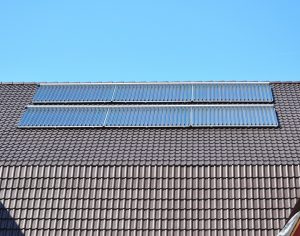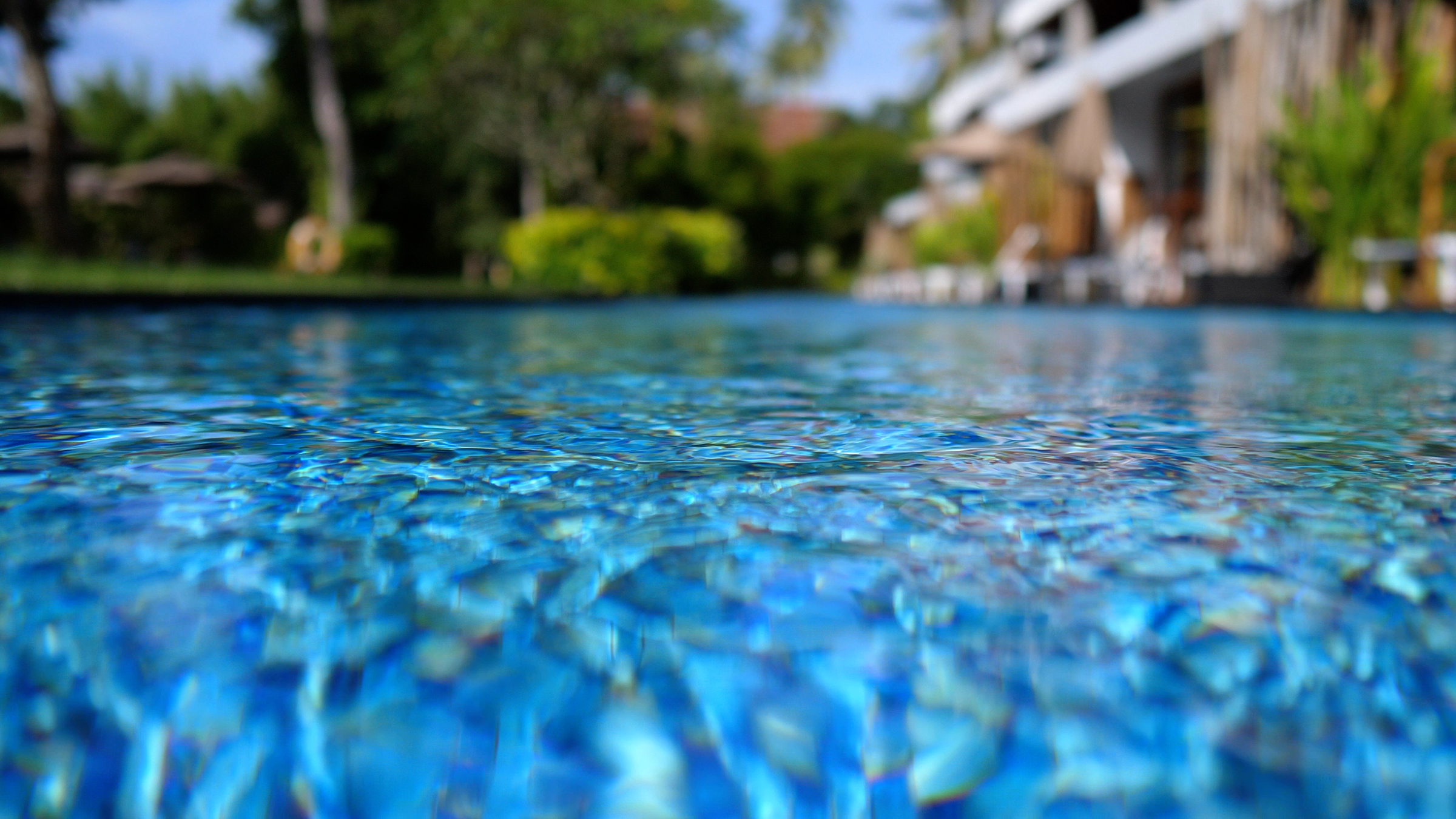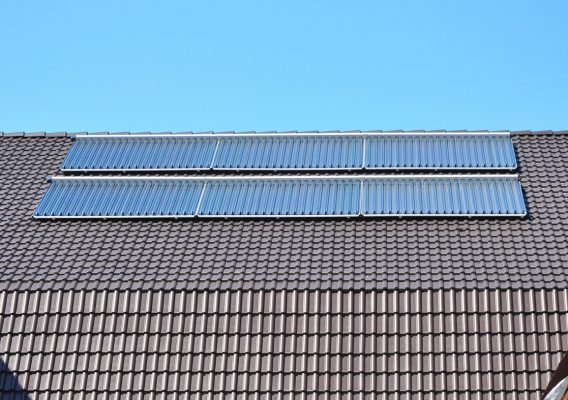A solar pool heater can be a very cost-effective way to heat a swimming pool, depending on the climate and sun exposure. Solar is the only pool heating technology more eco-friendly than a heat pump and has very low operating costs. The costs of solar pool heating materials and installation are comparable to gas heaters and heat pumps, around $3,000 to $4,000, and solar is the most cost-effective pool heating method in some climates.
Where Solar Pool Heaters are Ideal

Solar swimming pool heaters are ideal in sunny climates, rather than the Midwest or Northeast Coast in areas like Connecticut, where it is not uncommon to have overcast and rainy days in the summer. They can require several days of clear, sunny weather to raise the temperature a few degrees and do not provide the ability to program a temperature on demand. Heating with solar energy requires an ample amount of space to install all of the equipment and tubing, usually on a rooftop, to receive enough sun exposure.
When used in hot, sunny climates, solar pool heaters can be used to cool pool water during peak summer months by running water through the collectors at night. Pool owners committed to environmentally friendly energy usage may benefit from a solar pool heater in the right conditions, particularly when combined with a solar pool cover.
The Swimming Pool Store offers pool heater consultations to help pool owners determine the best type of pool heating technology to suit their needs with the most cost-efficient option.
How Solar Pool Heaters Work

Solar swimming pool heaters require the installation of solar panels, a lot of piping, and control valves to divert water flow after it is heated back into the pool. A solar swimming pool heating system consists of:
- Solar collector – the device that concentrates the solar radiation and heats water as it flows through the collector.
- Filter – collects any debris prior to water pumping through the collector.
- Pump – circulates pool water through the filter, collector, and back into the pool.
- Flow control valve – diverts water through the solar connector, can be manual or automatic.
Some solar pool heating systems may include automatic sensors with valves to divert water either through the collectors when the temperature is greater than the pool temperature or to bypass the solar collectors and return water to the pool when the temperatures are similar.
Unglazed and Glazed Solar Collector Systems
There are different types of materials for solar pool collectors, depending on your climate and intended usage. Unglazed collector systems do not include a glazing (glass covering) and should suffice when using the heater only when temperatures are above freezing. Unglazed systems are made of heavy-duty plastic or rubber with an ultraviolet (UV) inhibitor that extends the panel life. Unglazed collectors are typically less expensive than glazed collectors with a simple design and can also work well for indoor pools, even in cooler climates, and could be a less expensive investment than glazed collectors.
Glazed collector systems are more expensive as they are made of copper tubing and an aluminum plate with iron-tempered glass. Glazed collector systems capture solar heat more efficiently than unglazed collectors in colder weather. They can be used all year in various climates and can also be used to produce domestic hot water. Both unglazed and glazed collectors must have protection against freezing if used in colder weather conditions.
Selecting a Solar Pool Heater
Selecting a solar pool heater requires careful evaluation of various factors, and seeking the advice of a qualified swimming pool professional is the only way to make sure that you are choosing the right pool heating system.
Actual costs and return on investment depend on evaluating a list of considerations, including:
- Evaluating the solar resources with a site analysis
- Determining the correct solar heater system size
- Determining the proper orientation and tilt of solar collectors
- Determining the efficiency of the system
- Investigating local codes and regulations
- Comparing various system costs
Your swimming pool professional can help you with these considerations, and you can learn more about how to perform these tasks at Solar Swimming Pool Heaters.
The Swimming Pool Store can help you determine the best type of swimming pool heating technology for your pool, with expertise in heating pools in Connecticut. We offer pool heater installation consultations and more than 50 years of experience in providing professional swimming pool services. Contact us with any questions and to learn more about heating your pool and solar pool heaters.


